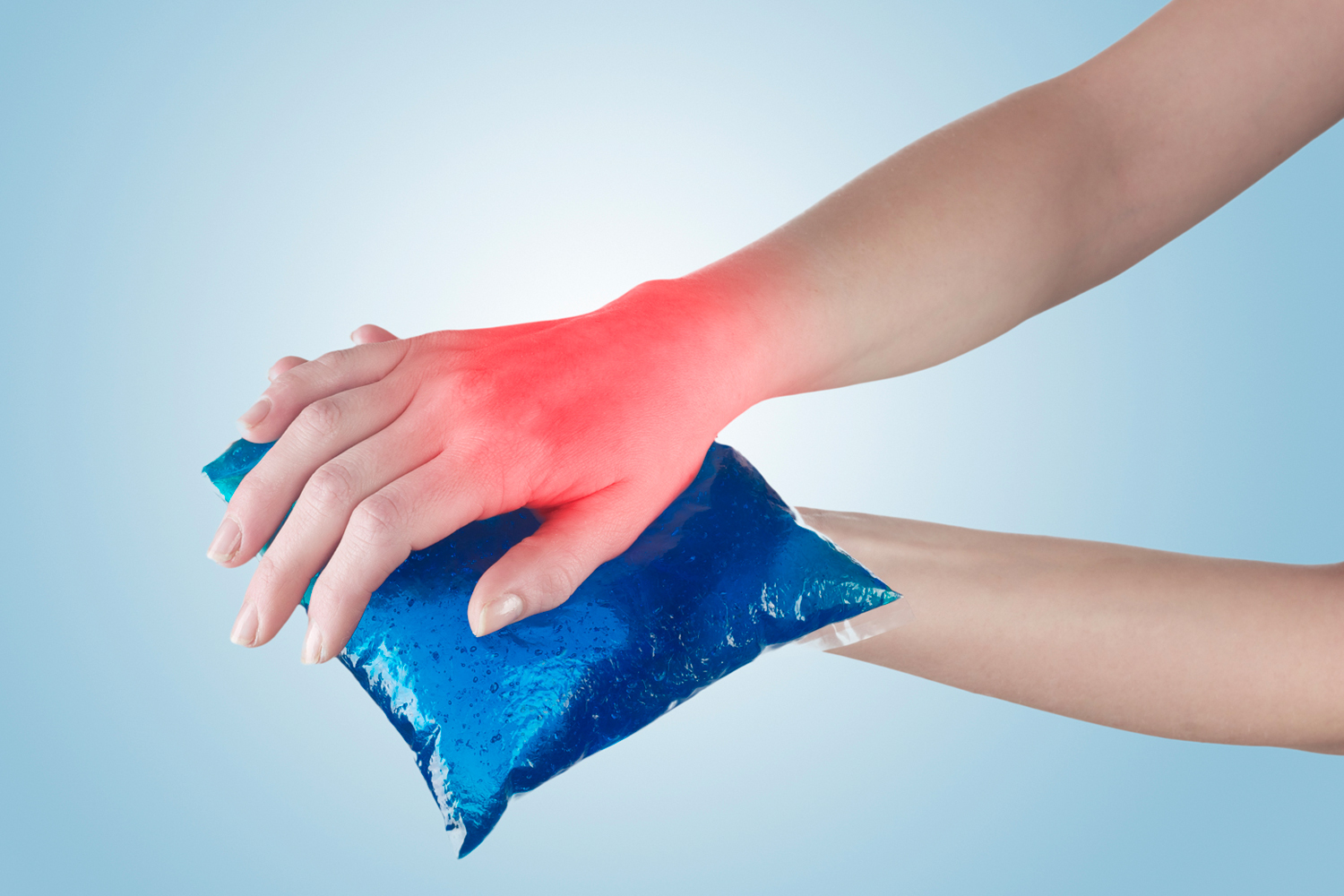EVEN AFTER CHEMOTHERAPY ENDS, patients often experience tingling, pain and numbness in their arms, legs, hands and feet. These symptoms—caused by nerve damage called peripheral neuropathy—can impair a person’s ability to write, walk or even drive a car. However, research presented in September 2022 at the European Society for Medical Oncology (ESMO) Congress suggests two potential preventive methods: compression and cooling.
Researchers theorize both of these approaches can slow blood flow to the hand during chemotherapy, restricting the drug from reaching the hand to avoid nerve damage, explains Charles Loprinzi, a medical oncologist at Mayo Clinic in Rochester, Minnesota, who has studied compression and cooling but was not involved in this study. Patients who use compression may wear two tight-fitting gloves on each hand during a chemotherapy infusion. For cooling, patients may wear frozen gloves or place their hands between bags of ice. Scientists have been investigating these methods for more than a decade, but professional organizations, such as the American Society of Clinical Oncology, say further studies are needed before they recommend specific approaches.
Research shows cooling can help prevent other chemotherapy-induced symptoms.
Cooling, also known as cryotherapy, may prevent chemotherapy-induced symptoms other than nerve damage. A review published July 2021 in Current Oncology found cooling with ice chips, ice packs or other similar methods may prevent mouth sores. Additionally, a June 2022 review in Oncology Nursing Forum concluded cooling could limit hair loss, and an October 2019 review in the Clinical Journal of Oncology Nursing found it may mitigate nail discoloration and injuries.
The findings presented at ESMO included 122 patients with breast cancer who used either compression or cooling on one hand during chemotherapy treatment. They did nothing for their other hand so it could serve as a control. Of the patients in the compression group, 39% reported neuropathy in the control hand compared with 23% in the intervention hand. In the cold therapy group, 46% of patients reported neuropathy in their control hand compared with 25% in the cooled hand.
When considering compression and cooling therapies to prevent nerve damage, patients may favor compression, partly because people don’t tolerate cold therapy well, says medical oncologist Charles Loprinzi of Mayo Clinic in Rochester, Minnesota. Future technology may allow patients to adjust temperatures when they get too cold rather than taking an ice bag off, he adds.
“It does look promising,” Loprinzi says of the study results. However, he cautions larger studies are needed to determine whether the methods are beneficial. Loprinzi is currently involved in a clinical trial examining the ability of compression, either individually or combined with cooling, to prevent chemotherapy-induced peripheral neuropathy. He expects findings to be published in a couple of years. In the meantime, some oncology teams could offer the experimental treatments, but they’re not yet widespread.
Cancer Today magazine is free to cancer patients, survivors and caregivers who live in the U.S. Subscribe here to receive four issues per year.





